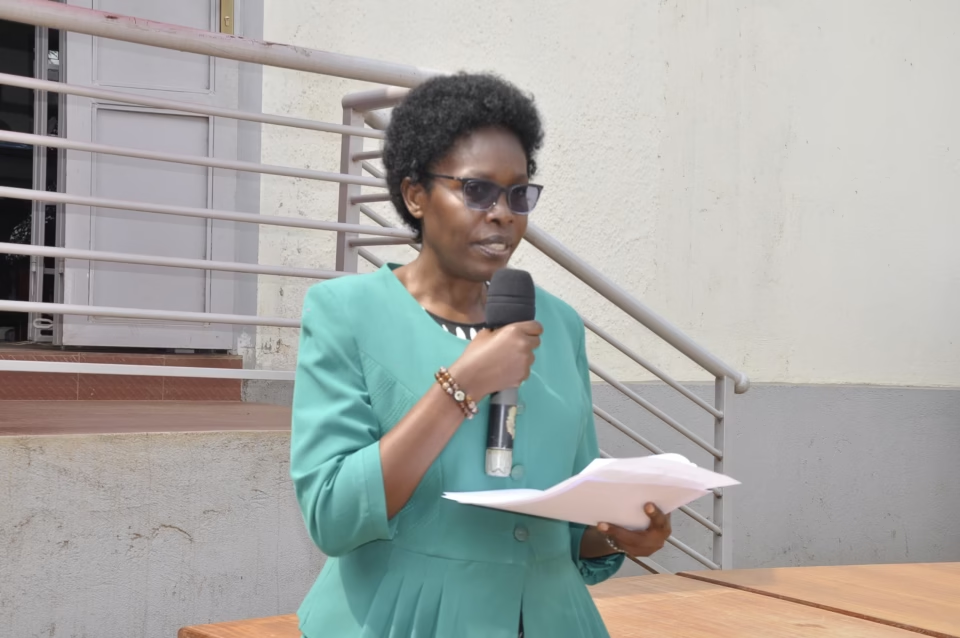For thousands of Ugandan families, August 4 wasn’t just another day—it was the day they officially became landowners.
In a ceremony held at the Ministry’s Data Processing Centre in Entebbe, Lands Minister Hon. Judith Nabakooba handed over 44,425 land titles to district leaders from 13 regions across Uganda. The handover marked a major step forward in the government’s promise to ensure that every Ugandan—especially those in rural and often forgotten communities—can legally own the land they live and farm on.
“This programme is a promise fulfilled,” Nabakooba said. “It means mothers and fathers can now sleep peacefully at night, knowing no one can take their land away. These titles will change lives.”
For generations, many Ugandans have lived and worked on land they didn’t officially own. With no legal proof, families were left vulnerable to disputes, evictions, and exploitation.
Now, that’s beginning to change.
The land titles—distributed under the Systematic Land Adjudication and Certification (SLAAC) programme—were allocated to families in 13 districts:
- Kikuube – 8,728
- Kamuli – 7,458
- Oyam – 4,616
- Maracha – 4,313
- Mayuge – 3,260
- Ntungamo – 3,618
- Isingiro – 2,978
- Sheema – 2,733
- Bukedea – 2,787
- Serere – 1,519
- Soroti – 1,279
- Luuka – 642
- Jinja – 494
These documents weren’t just handed over to government offices—they’re on their way to real people, in real villages, many of whom have been waiting years, if not decades.
What’s remarkable about the SLAAC programme is how affordable it has become. Each land title is available to beneficiaries at just UGX 85,000—a fraction of the UGX 8–10 million it typically costs to register land privately.
“It’s heartbreaking to think of how many people have lived in fear simply because they couldn’t afford a title,” Nabakooba said. “This programme is changing that. We’re saying, ‘You deserve to own your land—no matter your income.’”
With a title in hand, families can now use their land as collateral to access credit, pass it on legally to their children, or invest confidently in their homes and farms.
This land revolution is being powered by digital tools. The Uganda National Land Information System (UGNLIS) has helped to digitise land records, making the process faster, more accurate, and less prone to corruption.
“We can now clearly know who owns what, where, and how,” Nabakooba said. “This technology is making land administration more transparent—and more accessible.”
Residents are also being encouraged to verify their land information using the UGNLIS platform, which can be accessed online or through Zonal Offices.
Minister Nabakooba didn’t just celebrate the milestone—she also issued a reminder. Zonal Office staff have been instructed to distribute the titles quickly and efficiently, while local leaders have been urged to help residents understand their rights and responsibilities.
“These titles should be protected like your most valuable possessions,” she said. “Keep them safe, use them wisely, and most importantly—put your land to work. Grow, build, and prosper.”
With the SLAAC programme set to conclude on September 30, 2025, this recent batch of titles brings Uganda significantly closer to its goal of issuing 391,000 freehold titles in this second and final phase.
Richard Juuko, Undersecretary at the Ministry of Lands, acknowledged the challenges the teams have faced—especially with infrastructure and internet connectivity in rural areas—but praised their determination.
“Some families have waited for generations for this moment,” he said. “We are doing everything possible to make sure no one is left behind.”
In her closing remarks, Minister Nabakooba reminded everyone what this programme truly represents:
“This is not just about land. It’s about dignity. It’s about giving Ugandans the power to plan, to invest, and to pass on a legacy. This is about building stable homes, stronger communities, and a better Uganda for all.”
As the final month of the SLAAC programme approaches, the government is calling on all involved—local leaders, Zonal Office staff, and community members—to ensure that every mapped Ugandan receives their title without delay.
Because when a family holds a land title in their hands, they’re not just holding a document—they’re holding a future.



